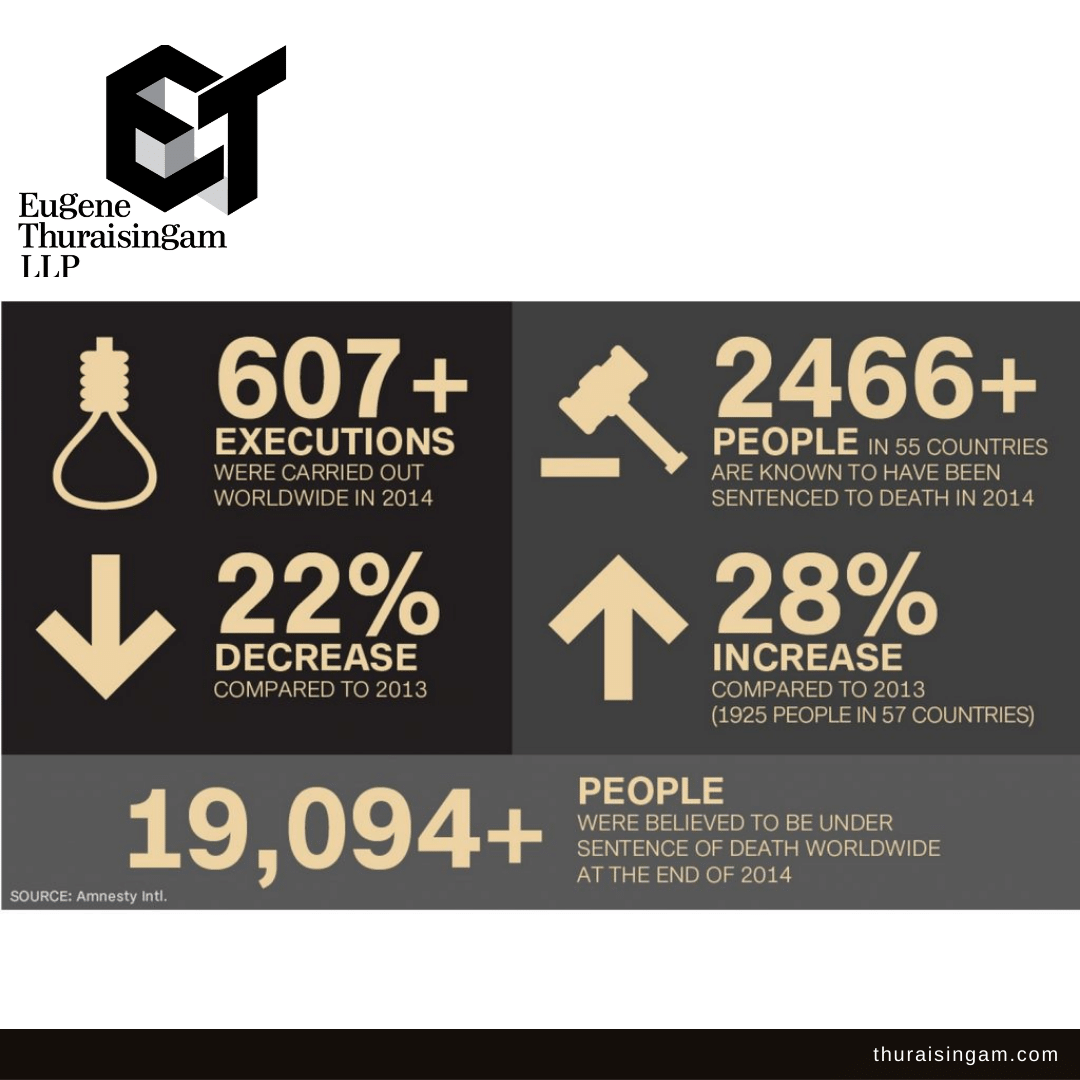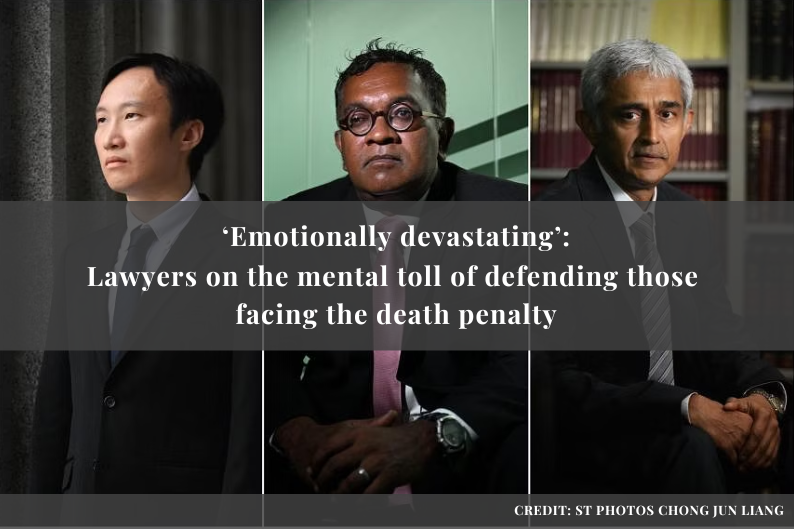Death Penalty in Singapore — a Matter of Life and Death
Capital Punishment in Singapore
1. Introduction
There are 32 offences that are punishable by death in Singapore. These include murder, drug trafficking, terrorism, and the possession of unauthorised firearms, ammunition or explosives.
2. Background
In 2012, Singapore Parliament passed laws to remove the mandatory death penalty in certain cases of drug trafficking, as well as murder cases where there were no intention to kill. Previously, murder and drug trafficking offences carried a mandatory death sentence.
With the new laws in place, the court will have the discretion to impose life imprisonment or the death penalty on those who commit murder but did not intend to kill, as well as drug couriers who have either been certified by the public prosecutor to have substantively assisted the Central Narcotics Bureau, or have proved themselves to be mentally impaired.
Some interesting statistics about the death penalty:-
- Approximately 106 countries worldwide have abolished the death penalty for all crimes.
- Approximately 36 other countries retain the death penalty for serious crimes such as murder, but have either not executed anyone in the past decade or have made an international commitment not to use the death penalty.
- Approximately 15 countries impose the death penalty for drug-related crimes, but according to human rights group Amnesty International, Singapore was one of four that recorded executions for drug offences in 2017. The others were China, Iran and Saudi Arabia.
Does capital punishment really serve a deterrent function? In particular, does it serve a deterrent function in relation to drug trafficking? The answer depends on who one asks.
3. Eugene comments in Today Online
Our senior criminal lawyer Eugene commenting in Today Online:-
When it comes to matters of life and death, there can be no margin for assumptions and/or doubt. No matter where one stands on the issue, it is absolutely essential that we examine the death penalty through a principled and evidence-based approach.
Read more in-depth by TODAY at the link below.







